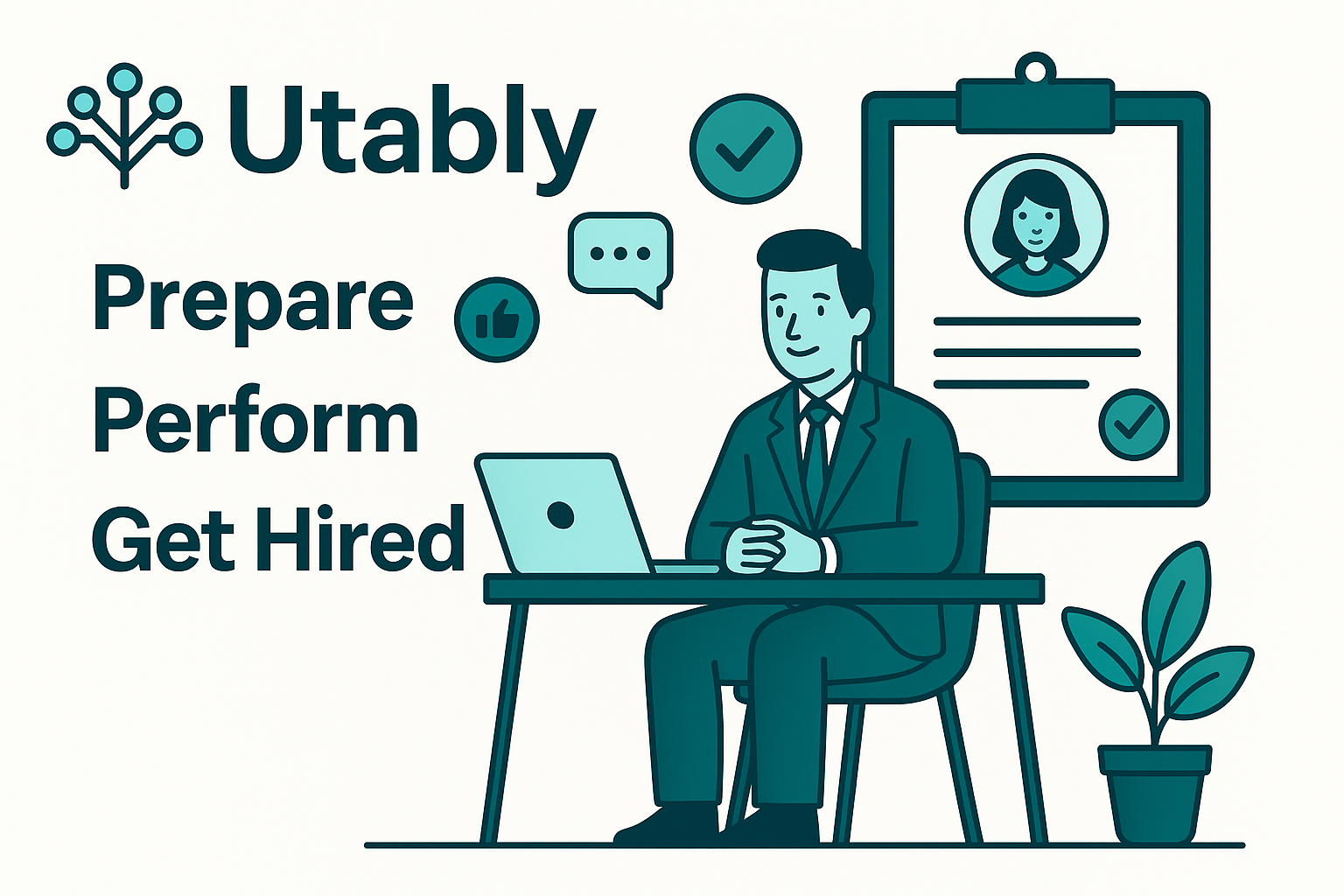CV crafting is an art. We don’t say this to be hyperbolic; first impressions are everything when it comes to the job-hunting journey, and it all starts with your CV.
You’ll be surprised by just how many people have submitted a CV to a prospective employer and found themselves rejected immediately because of making professional CV errors. These common CV mistakes can range from formatting and style issues to just plain being reckless with the information they are providing. So, to be successful in landing that first interview, here are ten CV mistakes to avoid and essential CV writing tips to ensure you get those interview offers coming in every time!
Key Takeaways
- Keep your CV clear and readable with short sections and bullet points.
- Always tailor it to the specific job and proofread carefully.
- Focus on real achievements instead of vague claims.
- Use professional formatting and tone throughout.
- Be honest and consistent with details like dates and experience.
- Leave out unnecessary elements like photos or graphics.
- Use relevant keywords naturally without overloading your CV.
1. Making your CV a wall of text that nobody can scan
Now, if you have a lot of job history, it’s natural that it might take up a couple of pages. You know what, that’s absolutely fine; you have the history, and it’s good to show that. When we say don’t make it too long, we mean don’t make your CV just a wall of text that covers five pages. Put yourself in the shoes of an employer or HR person who’s going through a ton of CVs. They only have so many hours in the day, and some of those hours are dedicated to other tasks. They have to be efficient with CVs, so make it easier for them by keeping that CV of yours as concise as possible:
- Use bullet points to list off key skills and job duties so that the CV is scannable and easily digestible
- Keep sentences short but descriptive to get your point across
- Leave some white space so the page doesn’t look cluttered
Remember, your CV is your first impression. If it looks like hard work to read, most people simply won’t bother.
2. Adding a photo to your CV (in the UK)
If you’ve ever looked at German or French CVs, you’ll notice they often include a small professional headshot. That’s completely normal there. In the UK, it’s a very different story…
You see, due to strict anti-discrimination rules, what you may consider a harmless thing to add can cause a lot of headaches for employers and recruiters:
- Employers here actively try to avoid seeing what you look like during initial screening because it opens them up to discrimination claims
- Most application systems can’t handle images properly and might reject your CV automatically
- Recruiters see it as unprofessional and assume you don’t understand UK hiring practices
They want to judge you on your skills and experience, not whether you’ve got a nice smile or happen to look like their last successful hire. That is not to say there are no exceptions to the rules, depending on the industry. But the space you’re using for a photo could be much better spent on actual achievements or qualifications:
- Add another key skill or certification instead
- Include an extra achievement that shows your impact
- Give yourself more room to explain your experience properly
Unless you’re applying to be an actor or model (where appearance is literally part of the job), leave the photo out entirely.
3. Sending the exact same CV to every single job
Think of all the people that you know. It’s highly likely that they write one CV and fire it off to dozens of employers. It feels efficient, right? You’re applying to loads of jobs without having to rewrite everything each time.
Well, employers can spot a generic CV as soon as they read the first line. They’re looking for someone who actually understands what they need, not someone who’s playing a numbers game.
When you send the same CV everywhere, you’re essentially telling each employer:
- I haven’t bothered to read your job description properly
- I don’t understand what makes your company different
- I’m probably sending this to fifty other places today
Recruiters say this is the single most damaging mistake you can make. They want to see that you’ve made an effort to connect your experience with their specific requirements.
Instead, spend a bit of time tweaking each application:
- Pick out the key skills they’ve mentioned and make sure yours match up
- Adjust your personal statement to reflect what they’re actually looking for
- Rearrange your experience to put the most relevant stuff first
Yes, it takes longer. But you’ll get far better results applying to ten jobs properly than firing off fifty identical CVs and hoping something sticks. Extra time and effort pay dividends in the long run.
4. Making spelling and grammar mistakes
You’d be shocked at how many CVs land on recruiters’ desks with basic spelling errors and grammar mistakes. We’re talking about simple stuff, things like “recieve” instead of “receive” or mixing up “there” and “their.”
This isn’t a case of being too over-perfectionist; research shows that 59% of recruiters cite spelling and grammar as their biggest CV complaint. That’s more than half of all recruiters immediately losing confidence in you because of a typo, especially if you are applying for writing-based jobs, such as copywriting or editorial roles.
This is the impression you will give off by making this mistake:
- It suggests you don’t pay attention to detail (a skill that about 75% to 85% of jobs ask for as a basic requirement)
- It makes them question your literacy and communication skills
- It shows you couldn’t be bothered to proofread the most important document in your job search
Think about it from their perspective. If you can’t get your CV right (something you’ve probably spent hours on), how careful will you be with their work?
The fix is straightforward but takes discipline:
- Read your CV out loud to catch mistakes your eyes might miss
- Use spell check, but don’t rely on it completely
- Get someone else to read it through; fresh eyes spot errors you’ve become blind to
- Print it out and check the hard copy (mistakes show up differently on paper)
One typo might not kill your chances, but several will. Don’t let sloppy proofreading be the reason you don’t get that interview.
5. Using terrible formatting that makes your CV painful to read
Lorem ipsum dolor sit amet, consectetur adipiscing elit. Ut elit tellus, luctus nec ullamcorper mattis, pulvinar dapibus
Some people think their CV needs to stand out visually, so they go wild with fonts, colours, and fancy layouts. They’ll use Comic Sans for headings, throw in some bright graphics, or create these elaborate designs that look more like a poster than a professional document.
Big mistake. Research shows that 40% of recruiters get frustrated by bad formatting before they even read the content.
Here’s what happens when you get creative with your CV design:
- Recruiters struggle to find the information they’re looking for quickly
- Fancy fonts and colours can look unprofessional and distracting
- Graphics and unusual layouts often don’t work with applicant tracking systems
- It screams, “I don’t understand workplace norms”
Recruiters want to scan your CV efficiently. They’re not looking for your artistic skills (unless you’re applying to be a graphic designer or similar role). They want clear, easy-to-read information that helps them do their job.
Stick to the basics instead:
- Use standard fonts like Arial or Calibri in size 11 or 12
- Keep colours minimal; black text on a white background works perfectly
- Use consistent formatting throughout (same bullet points, same spacing)
- Create clear sections with simple headings
The goal is readability above all else. If someone can’t quickly find what they’re looking for, your CV will quickly end up in the rejected pile.
6. Writing unprofessionally
Your CV needs to strike the right professional tone, but many people get this wrong in two ways.
Some write too casually, using informal language that belongs in text messages rather than job applications. Others go too far in the other direction, stuffing their CV with meaningless buzzwords that say nothing about their actual abilities.
The casual approach undermines your credibility:
- Informal language makes your achievements sound less impressive
- It suggests you don’t understand workplace communication standards
- You risk not being taken seriously
The buzzword approach is equally problematic:
- “Think outside the box” tells them nothing about what you actually do
- “Synergistic team player” is meaningless corporate speak
- “Results-driven professional” could describe literally anyone
Both fail to communicate your real value. Write clearly and professionally instead:
- Use specific examples rather than vague personality claims
- Describe what you achieved, not how “passionate” you are about it
- Write like you’re explaining your role to a colleague who doesn’t know your job
- Skip the filler words and get straight to the point
Your goal is to sound competent, approachable and credible, and that all starts with maintaining a professional tone throughout your CV.
7. Making wild claims without any proof
You see this all the time on CVs, statements like: “best manager in the industry” or “exceptional leader with unparalleled problem-solving skills.” These statements might sound impressive in your head, but they just make recruiters roll their eyes.
The problem with these claims is simple: anyone can write them. There’s no way to verify whether you’re legitimately the “best” at anything, and recruiters know it; not to mention if, somehow, you get considered for the role, they will reach out to your references to validate these grandiose claims.
Here’s what happens when you make unproven claims:
- You sound arrogant rather than confident
- Recruiters question what you’re trying to hide behind the big words
- You waste space that could show actual achievements
- You come across as someone who talks a big game but might not deliver
Instead of telling them how amazing you are, show them what you’ve actually done:
- Replace “exceptional sales professional” with “Increased sales by 23% over 12 months”
- Swap “Outstanding team leader” for “Led a team of 8 through successful project delivery”
- Change “highly efficient manager” to “reduced processing time by 15% through workflow improvements”
Numbers and specific examples carry weight because they can be verified. They show real impact rather than empty boasting.
Let your results speak for themselves. If you genuinely are exceptional, your achievements will make that obvious without you having to say it.
8. Just listing what you did instead of what you achieved
This is probably the most common mistake people make. They’ll write something like “responsible for managing social media accounts” or “handled customer enquiries.” While these could be technically accurate, they are completely useless.
Every CV looks the same when people just list their job duties. The person who did the role before you probably had the same responsibilities. The person who’ll do it after you will, too.
What makes you different is what you actually accomplished in that role:
- “Managed social media accounts” becomes “grew social media following by 40% in 6 months”
- “Handled customer enquiries” turns into “resolved 95% of customer complaints on first contact”
- “Organised team meetings” changes to “streamlined weekly meetings, saving 2 hours per week”
Recruiters want to see the impact of your work, not just a rehash of the job description. They can read that on the company website.
Focus on results instead:
- What improved because you were there?
- What problems did you solve?
- What did you save or earn for the company?
- How did things work better after your involvement?
If you can’t think of any achievements for a role, you’re probably not thinking hard enough. Even small improvements count. The goal is to show you make a difference, not just turn up and do the bare minimum.
9. Leaving mysterious gaps in your work history
Nothing makes recruiters more suspicious than seeing a CV where someone worked at Company A until March 2022, then started at Company B in September 2023. What happened to those six months? Were you in prison? Sacked for gross misconduct? Travelling the world?
They’ll assume the worst if you don’t tell them. Employment gaps without explanation create instant distrust, even when the real reason is perfectly innocent.
You don’t need to write your life story, but you do need to acknowledge the gap:
- “Career break for family responsibilities” covers parenting or caring duties
- “Sabbatical for travel and personal development” explains your gap year
- “Freelance consulting work” shows you weren’t just sitting around
- “Further education and professional development” covers courses or training
Even short explanations work better than leaving people guessing. If you were genuinely unemployed and job hunting, just say that. Recruiters understand that finding work takes time, especially in tough markets.
What they don’t understand is why you’d try to hide it. So, with this in mind:
- Put the dates in your timeline clearly
- Add a brief line explaining any gaps longer than a few months
- Keep it factual and move on quickly
- Don’t over-explain or sound defensive
Honesty signals that you’re trustworthy and have nothing to hide. Mystery just makes them think you’re dodging something important.
10. Stuffing keywords everywhere to trick the system
You’ve probably heard that companies use applicant tracking systems (ATS) to scan CVs for specific keywords. So some people think they’re being clever by cramming every possible keyword from the job description into their CV, sometimes even in white text that’s invisible to human readers.
This approach usually backfires spectacularly. Yes, many companies use ATS software, but humans still make the final decisions. When your CV reads like a robot wrote it, that human reviewer notices immediately.
Keyword stuffing creates several problems:
- Your CV becomes unreadable and awkward to follow
- You look desperate and like you don’t understand how recruitment works
- Repeated keywords make sentences clunky and unnatural
- Recruiters can spot obvious manipulation from a mile away
The obsession with gaming the system misses the point entirely. ATS software is getting smarter, and most systems now focus on context and relevance rather than just counting keyword matches. This looks particularly bad if you’re applying for an SEO role, where keyword stuffing is exactly what professionals are trying to avoid.
Use keywords naturally instead:
- Include relevant terms where they genuinely fit your experience
- Focus on skills and technologies you actually know
- Write for humans first, systems second
- Let your real experience speak for itself
If you don’t naturally use the keywords they’re looking for, you probably aren’t right for the job anyway. Stop trying to trick your way past the filters and start showing why you’re actually qualified.
Getting your CV right isn’t rocket science, but it does require attention to detail and a bit of common sense. Most of these mistakes happen because people either don’t know the rules or they’re trying too hard to stand out in the wrong ways.
The good news? Now you know what not to do. Focus on clear, professional presentation that showcases your actual achievements. Tailor each application to the specific role. Proofread everything twice. Keep it relevant and honest.
Do these things well, and you’ll already be ahead of the majority of applicants who are still making these basic errors.
Your next interview is waiting. Just don’t let any of these ten mistakes get in the way of it.




